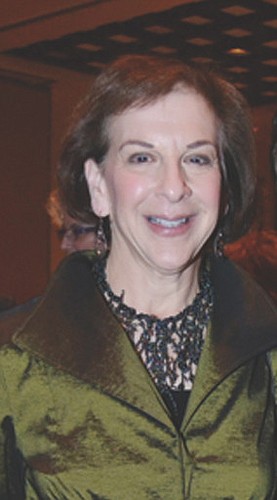- April 19, 2024
-
-
Loading

Loading

The recent law approved by the Legislature and governor is frightening and, perhaps even more offensive, cynical. Either way, we cannot afford to let it stand.
The law is commonly referred to as the “school prayer” law. Signed by Gov. Scott March 23 and which takes effect July 1, the law allows “an inspirational message to be delivered by students at a student assembly.”
This is in public schools. It requires that the students, themselves, decide whether an inspirational message will be delivered and they solely are responsible for the content of the message, with teacher or other school personnel involvement, influence or review prohibited.
The stated purpose of the law “is to provide students with the opportunity for formal or ceremonious observance of an occasion or event.” Here’s the twist: The law doesn’t provide for all of this directly. Rather, it permits a local school board to adopt a policy that will allow for these “inspirational messages” and requires, if the policy is adopted, that it include provisions for student control, absence of teacher involvement and the rest.
The wording of the law seems innocuous. The word “prayer” is not mentioned. But the use of the phrases such as “inspirational message” for the purpose of injecting a “ceremonious purpose” into assemblies clearly evinces the religious intention.
The bill’s sponsors further expressed that intention. Sen. Gary Siplin, D-Orlando, one of the sponsors, said he wanted to empower students to exercise their rights to freedom of expression and freedom of religion in the school setting.
Rep. Charles Van Zant, R-Keystone Heights, the other sponsor, noted that since the removal of compulsory school prayer (by the U.S. Supreme Court) in 1963, school disciplinary cases have increased. He said that before compulsory prayers were removed, the top problem in schools was talking out of turn; and, now, it’s drug abuse. Does he really think this will solve those problems?
Asked about the law, Scott said, “As you know, I believe in Jesus Christ, and I believe that individuals should have the right to say a prayer.”
Perhaps the governor and Siplin forgot that under Florida law, students are already free to pray, with time expressly set aside for silent prayer at the beginning of the school day. If their stated purpose is sincere, then the law simply isn’t needed.
Many organizations — the ACLU, Anti-Defamation League, Americans United for Separation of Church and State and the American Jewish Committee — and people pressed legislators and the governor in opposition to the bill. They put forth their best arguments for how the law violates the principle of separation of church and state, which derives from the U.S. Constitution and has been enunciated in numerous U.S. Supreme Court decisions.
Siplin has said the law has been vetted by the best legal minds and will withstand a constitutional challenge. It’s all well to say that interested parties can sort it out in the courts. But who will pay for the expensive and time-consuming litigation?
The school districts that adopt the policies permitted by the law will be the ones challenged in court. Is that really how local tax dollars need to be spent? Don’t school districts have enough to address? And isn’t it kind of thoughtless (at best) for legislators and the governor to dump the whole issue on the laps of the school districts?
The seriousness of the constitutional issues and the offense to the freedom of religion that we so dearly treasure cannot be understated.
But constitutional issues aside, the prospect of such a policy in action is just scary. It provides a “bully pulpit” for any particular point of view. That point of view could, in fact, be inspirational and non-religious. But if that were truly the case, why would we need a law to permit a policy to allow students to deliver a message like that?
During the debate on the bill, Van Zant was asked if readings from a book such as the “Aryan Christian Manifesto” would be allowed. Van Zant said yes, “that would be the student’s prerogative.”
So students could deliver any kind of message — denying the Holocaust, promoting racial or religious prejudice, ridiculing minority groups — all without even the safety net of teacher supervision. Imagine the fall-out from that!
This is where we get to the “cynical” part, the part that makes it clear that the whole exercise wasn’t about school prayer at all.
The Legislature and governor, in approving this law, were able to promote their own postures as prayerful and God-fearing. And they seem to have ignored the fact that Florida already allows prayer in schools.
But they passed the buck and the attendant problems to the school districts. So they got to play up to those constituents who’d like to inject more religion into government, without addressing any of the issues or implications, and then wipe their hands of the mess that’s sure to ensue.
Although it’s tempting to be derisive about this new law, we still do need to take it seriously. Therefore, I encourage you to urge for its repeal in the next legislative session, and in the meantime we should do our best to make sure that our local school boards understand this mess and avoid the traps that await any district that adopts a policy, at best superfluous and at worst dangerous, providing for “inspirational messages.”
Sue Jacobson is a Sarasota lawyer and regional president of the American Jewish Committee.